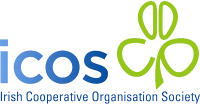
Damien O'Reilly
EU Affairs and Communication Manager, ICOS
Letter from Brussels - March 2024

She said: “I would like to take this opportunity to express my appreciation to our farmers, to thank them for providing us with food day after day. For us in Europe, this task of agriculture – producing healthy food – is the foundation of our agricultural policy. And self-sufficiency in food is also important for us. That is what our farmers provide.”
The German, a favourite to retain her job later this year, was true to her word. At the end of January, a total of 27 organisations participated in the first meeting of the Strategic Dialogue on the Future of Agriculture ranging from farmers, co-operatives, NGOs, academics, and banks. The group is chaired by Professor Peter Strohschneider who chaired the Commission on the Future of Agriculture in Germany.
A report from the committee is due by late summer which ‘will form the foundation of our future agricultural policy’ according to Commissioner von der Leyen. The presidents of COPA and COGECA - the EU umbrella organisations representing farmers and cooperatives across Europe - are around the table and will have the opportunity to voice the views and frustrations of their members. And there are many, as we have seen from the recent spate of farmer demonstrations which took place sporadically across member states over the past few months.
There is no one single issue which has prompted the protests. Rather, farmers in different countries have their own local gripes. But one thread which joins the dots is red tape and bureaucracy. Income concerns and weather events are a daily concern which farmers have to cope with regardless. But EU policy demands which have come thick and fast in recent years when compared to other years has forced farmers to shout ‘stop’.
And it seems that it is getting through to the powers that be, here in Brussels. The setting up of the strategic dialogue is a sort of recognition of the important and often underappreciated role of the EU food producer. But it will also give all stakeholders the opportunity to debate how exactly the EU Green Deal targets can be met whilst protecting food security and farm incomes. The Green NGOs are also part of the dialogue, and they will naturally be pushing for a reduction in pesticide use, better animal welfare standards, more land devoted to biodiversity and organic production. But this can only be achieved if the farmer’s voice is heard too.
The recent decision by President von der Leyen to also bin the controversial Sustainable Use Regulation (SUR) and start again should not be seen by farmers as a complete peeling back on the key aims of the Green Deal. Instead, it can be interpreted as a recognition by the Commission that future tough agriculture-related policy decisions under the Green Deal banner must include input from stakeholders. The EU Commissioner said as much when effectively scrapping the current SUR proposal: “The SUR proposal has become a symbol of polarisation. It has been rejected by the European Parliament. There is no progress anymore in the Council either. So, we have to do something.”
Farmers, food producers and co-operatives should not become complacent. Tough policies to meet environmental targets remain, along with all the other geopolitical problems of the world which impact us all. But as this current Commission comes to an end, there is at least some small comfort to be taken in the fact that there is some recognition that EU food producers have a voice.






